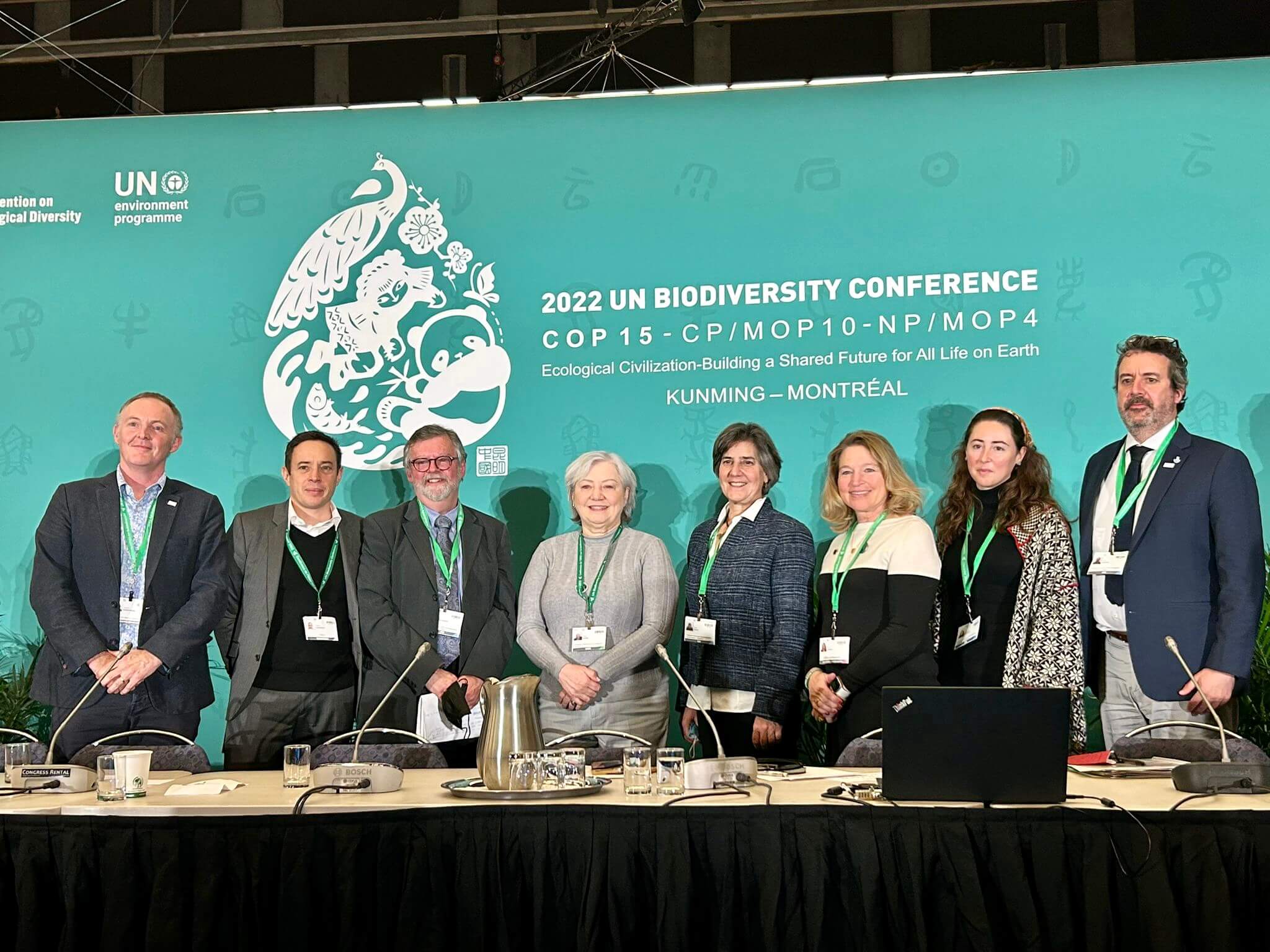
COP15 in December 2022 marked a turning point for commitments on ocean biodiversity. Alongside IOC/UNESCO’s flagship ‘An Ocean of Life’ event, new goals and targets were introduced on science, information, data, funding and more.
Chaired by China and hosted by Canada in Montreal, the 15th Conference of Parties of the Convention on Biological Diversity (CBD COP15) saw nearly 200 countries agree to protect 30% of lands, oceans, coastal areas and inland waters by 2030, as part of the new and historic Kunming-Montreal Global Biodiversity Framework (GBF). This ’30 x 30 pledge’ is one of the Framework’s four agreed Goals and 23 Targets to achieve by 2030.
In order to raise the profile of marine and coastal biodiversity issues during COP 15, the Intergovernmental Oceanographic Commission of UNESCO (IOC/UNESCO), in its role as coordinator of the United Nations Decade of Ocean Science for Sustainable Development (Ocean Decade), held COP15’s flagship half-day ocean event: ‘An Ocean of Life’ on 16 December 2022, bringing together key voices in a high-level dialogue on the science and policy solutions required to halt ocean biodiversity loss.
The Director-General of UNESCO, Audrey Azoulay, opened the discussion and was joined by representatives including H.E. Thérèse Coffey, Secretary of State for Environment, Food and Rural Affairs, U.K.; H.E. Espen Barth Eide, Minister of Climate and Environment, Norway; and H.E. Joyce Murray, Minister of Fisheries and Oceans, Canada; Peter Thomson, UN Secretary-General’s Special Envoy for the Ocean; Andrew Rhodes, Special Envoy for Oceans attached to the Undersecretary for Multilateral Affairs and Human Rights, Mexico; Olivier Poivre d’Arvor, Special Envoy of the President for UNOC 2025 and Ambassador for Poles and Oceans, France.
The event highlighted the importance of protecting and sustainably managing marine and coastal biodiversity to achieve a future more sustainable world. It also explored the role of the Ocean Decade to generate the science and knowledge that is the basis for action to address the marine biodiversity crisis.
“The GBF is a framework for all UN agencies, and for integrating knowledge systems, to meet the challenges we face,” said David Obura, Founding Director of CORDIO East Africa, who delivered the keynote address. “We are finally recognising that we need to integrate different knowledge systems to ensure all groups are involved in decisions on the future management of our ocean.”
The event launched a new policy brief, Ocean science for biodiversity conservation and sustainable use demonstrating how the Ocean Decade supports the Convention on Biological Diversity and the GBF. This includes the role of ocean observations via the Global Ocean Observing System (GOOS) and its partners, such as the Ocean Biodiversity Information System (OBIS) and the Marine Biodiversity Observation Network (MBON), as a foundation for biodiversity protection and sustainable use, and the ways in which new technologies such as eDNA can ensure that all countries can generate the knowledge needed to protect their marine and coastal resources.
Attention will now turn to implementation of the GBF and its Goals and Targets. A key challenge for the GBF will be the need to mobilise resources and this issue was a key focus of negotiations at COP 15, including raising financial support from developed to developing countries, prioritising the least developed countries (LDCs), small island developing states (SIDS), and countries with economies in transition.
IOC/UNESCO and the Ocean Decade remain committed to working with partners to contribute to the effective implementation of the GBF in relation to marine and coastal biodiversity, with a particular focus on ensuring that relevant and timely science and knowledge are generated and used for biodiversity solutions.
***
About IOC/UNESCO:
The Intergovernmental Oceanographic Commission of UNESCO (IOC/UNESCO) promotes international cooperation in marine sciences to improve management of the ocean, coasts and marine resources. The IOC enables its 150 Member States to work together by coordinating programmes in capacity development, ocean observations and services, ocean science and tsunami warning. The work of the IOC contributes to the mission of UNESCO to promote the advancement of science and its applications to develop knowledge and capacity, key to economic and social progress, the basis of peace and sustainable development.
About the Ocean Decade:
Proclaimed in 2017 by the United Nations General Assembly, the UN Decade of Ocean Science for Sustainable Development (2021-2030) (‘the Ocean Decade’) seeks to stimulate ocean science and knowledge generation to reverse the decline of the state of the ocean system and catalyse new opportunities for sustainable development of this massive marine ecosystem. The vision of the Ocean Decade is ‘the science we need for the ocean we want’. The Ocean Decade provides a convening framework for scientists and stakeholders from diverse sectors to develop the scientific knowledge and the partnerships needed to accelerate and harness advances in ocean science to achieve a better understanding of the ocean system, and deliver science-based solutions to achieve the 2030 Agenda. The UN General Assembly mandated UNESCO’s Intergovernmental Oceanographic Commission (IOC/UNESCO) to coordinate the preparations and implementation of the Decade.
Communications contacts:
IOC/UNESCO
Vinícius Grunberg Lindoso
v.lindoso@unesco.org
Ocean Decade
Sharon Rapose
s.rapose@unesco.org